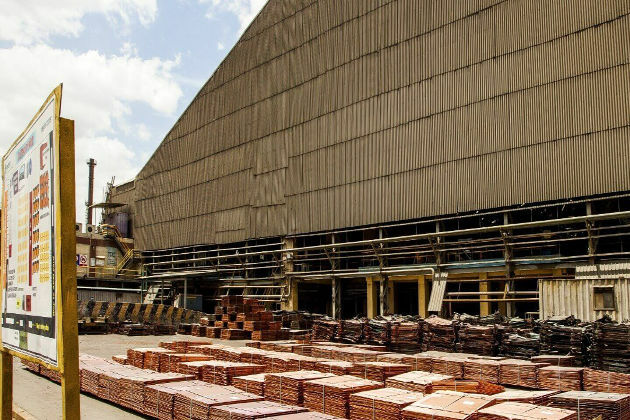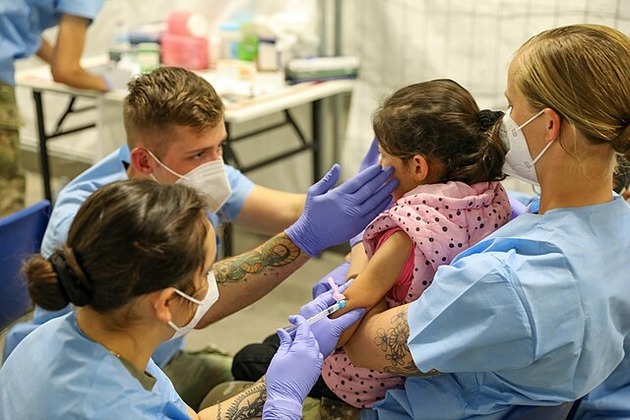SRE vs. DevOps: What's the Difference?
Evertise
18 May 2023, 23:54 GMT+10

When it comes to software development and IT operations, two prominent methodologies have been at the forefront of the conversation: Site Reliability Engineering (SRE) and DevOps. With both approaches promising increased agility, reliability, and efficiency, it can be challenging for organizations to determine which best suits their needs. This article delves into the distinctions between SRE and DevOps, their pros and cons, and how to implement these methodologies in your organization.
Understanding the Core Principles

Before diving into the differences between SRE and DevOps, it's essential to grasp the central principles of each methodology. SRE, pioneered by Google, focuses primarily on improving the reliability and stability of applications and infrastructure. This is achieved by implementing robust, automated monitoring and incident response systems and stringent service level objectives (SLOs). Moreover, SRE teams are typically composed of engineers who work closely with both development and operations to ensure that applications are designed, built, and deployed with reliability and stability as a key priority.
On the other hand, DevOps is a cross-functional collaboration between development and operations teams that emphasizes continuous integration and delivery (CI/CD). By breaking down silos between departments, DevOps aims to improve software development, deployment, and maintenance speed and efficiency. This unified approach promotes a culture of shared responsibility, empowering team members to take ownership of their work and focus on delivering high-quality software to end users.
While both SRE vs DevOps methodologies prioritize delivering reliable, efficient software, their primary focus differs: SRE emphasizes reliability and stability, whereas DevOps champions the rapid delivery of new features and updates.
Key Differences Between SRE and DevOps
Although SRE and DevOps overlap in some areas, they diverge in critical aspects, including monitoring, automation, and incident response. For instance, SRE significantly emphasizes comprehensive monitoring and automated incident response systems. These tools enable SRE teams to proactively identify potential issues, minimize downtime, and rapidly respond to incidents. Additionally, SRE imposes strict SLOs that establish performance benchmarks, encouraging teams to maintain high levels of reliability and stability.
Conversely, DevOps is more focused on integrating development and operations through CI/CD pipelines, emphasizing the importance of regular, rapid software updates. As a result, DevOps teams work to minimize manual tasks and implement automation, thereby accelerating the development and deployment of new features and bug fixes. This approach can lead to more frequent application updates and an increased pace of innovation.
Another distinction lies in the organizational structure of SRE and DevOps. SRE teams are typically segregated and tasked with overall system stability and reliability, working alongside development and operations. While DevOps seeks to eliminate silos, encouraging a joint effort between developers and operators in a unified team with shared responsibilities and objectives.
Choosing the Right Path for Your Organization
There is no one-size-fits-all solution when considering whether to implement SRE or DevOps in your organization. To determine the optimal approach, it's crucial to thoroughly evaluate your organization's unique needs, goals, and constraints. Factors such as company size, business focus, resources, and existing processes can influence decision-making.
If your organization prioritizes application stability and availability, SRE might be the more appropriate. Implementing stringent monitoring systems, robust incident response mechanisms, and performance-driven SLOs could benefit you. Additionally, businesses that operate in highly regulated industries or are exceptionally risk-averse may also find SRE a more suitable fit due to its proactive approach to reducing downtime and ensuring reliability.
Alternatively, DevOps could be the better option if your organization is focused on rapid innovation and frequent application updates. Companies that need to respond swiftly to market conditions and customer demands may benefit from the greater agility and speed offered by a CI/CD-driven approach. Moreover, organizations with a more collaborative and open culture may favor the shared responsibility ethos espoused by DevOps.
Embracing a Hybrid Approach

While SRE and DevOps are distinct methodologies with unique benefits and drawbacks, they do not have to be mutually exclusive. Many organizations adopt a hybrid approach, incorporating elements from both strategies to derive maximum value.
Choosing between SRE and DevOps comes down to your organization's unique needs and objectives. By evaluating which methodology aligns best with your priorities and embracing a continuous improvement mindset, you can build your business's optimal development and operations strategy.
 Share
Share
 Tweet
Tweet
 Share
Share
 Flip
Flip
 Email
Email
Watch latest videos
Subscribe and Follow
Get a daily dose of Austin Globe news through our daily email, its complimentary and keeps you fully up to date with world and business news as well.
News RELEASES
Publish news of your business, community or sports group, personnel appointments, major event and more by submitting a news release to Austin Globe.
More InformationBusiness
SectionBitcoin soars to a record on Trump policies, institutional demand
NEW YORK CITY, New York: Bitcoin surged to a new all-time high this week, buoyed by growing institutional interest and a wave of pro-crypto...
Huawei eyes new buyers for AI chips amid U.S. export curbs
SHENZHEN, China: As global chip competition intensifies, Huawei Technologies is exploring new markets in the Middle East and Southeast...
U.S. food prices at risk as Brazil tariff hits key imports
LONDON/NEW YORK CITY: American grocery bills may be headed higher as coffee and orange juice prices face upward pressure from new tariffs...
WK Kellogg sold to Ferrero as food giants chase shelf power
BATTLE CREEK, Michigan: In a major consolidation of iconic food brands, WK Kellogg has agreed to be acquired by the owner of Ferrero...
Filmmaker joins biotech effort to bring back extinct giant bird
WASHINGTON, D.C.: Filmmaker Peter Jackson's lifelong fascination with the extinct giant New Zealand flightless bird called the moa...
India seeks WTO nod for retaliatory tariffs on US
NEW DELHI, India: India has submitted a revised proposal to the World Trade Organization (WTO) in Geneva to implement retaliatory tariffs...
Texas
SectionCDC: US records 1,288 measles cases, most since 1992 outbreak
ATLANTA, Georgia: The United States is facing its worst measles outbreak in more than three decades, with 1,288 confirmed cases so...
Royals place RHP Michael Lorenzen (oblique) on IL
(Photo credit: Rick Scuteri-Imagn Images) The Kansas City Royals placed right-hander Michael Lorenzen on the 15-day injured list...
Report: Louisiana Tech leaving CUSA for Sun Belt
(Photo credit: Nelson Chenault-Imagn Images) Louisiana Tech is leaving Conference USA to become the 14th member of the Sun Belt Conference,...
US: Ganapathy Sachchidananda Swamiji leads global Bhagavad Gita festival in Dallas with 10,000 participants
Texas [US], July 14 (ANI): A grand global celebration of the Bhagavad Gita concluded at Allen Stadium in Frisco, Dallas, under the...
The anatomy of a flash flood: Why the Texas flood was so deadly
Between July 3 and 6, Texas Hill Country experienced catastrophic flash flooding along the Guadalupe River system. The floods claimed...
MI New York edgepast Washington Freedom by five runs to secure MLC 2025 title
Dallas [US], July 14 (ANI): MI New York staged one of the most amazing comebacks in franchise T20 history, defeating reigning champions...













